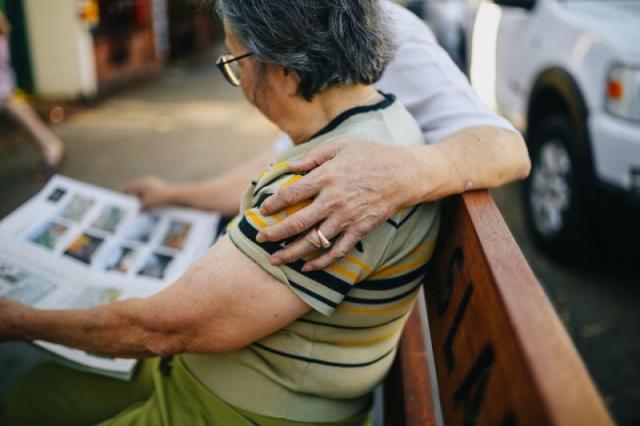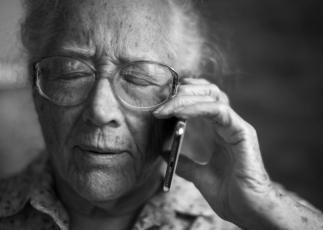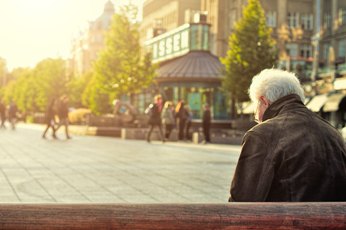Reports, briefing and strategy identify actions to address elder abuse and neglect
Tue 09 Feb 2021
This News article collates the proposed MSD strategy on elder abuse, reports from Aotearoa New Zealand and the report from the UN expert on rights of older people.

MSD strategy
In December 2020, the Ministry of Social Development (MSD) released a proposed strategy for elder abuse response services funded by MSD.
Elder Abuse in Aotearoa: The proposed future strategy for Elder Abuse Response Services (2020) identifies five proposed priorities:
- Supporting older people to live abuse free
- Serving the needs of an ageing population
- Supporting providers to deliver best-practice services
- Giving our regions support to deliver an integrated response
- Recognising elder abuse services as a key family violence service.
It also outlines proposed actions for change aligning to three phases of action:
Stabilise
- Applying transparent funding
- Improving contracting and reporting
Strengthen
- Capability building of the sector
- Invest in Māori, Pacific and culturally diverse services
Grow
- Increasing investment for medium-long term support
- Investing in social connectedness and community support
- Investing in prevention and awareness raising activities
The proposed strategy draws on the report Elder Abuse in Aotearoa: The role and current state of MSD’s Elder Abuse Response Services published by MSD in December 2019. It also aligns with other MSD strategies and the government’s ageing strategy Better Later Life – He Oranga Kaumātua 2019-2034 which includes safety and elder abuse and neglect.
Age concern briefing
Age Concern New Zealand published their Briefing to Incoming Ministers 2020. Preventing elder abuse and neglect is one of the five key issues identified for collaborative action. Under this key area, Age Concern outlines seven recommended actions:
- Protect the rights of older people to make their own decisions and choices
- Review the decision-making tenets and the mental capacity assessment processes implicit in the Protection of Persons and Property Act
- Educate the public and raise awareness about elder abuse, it’s impact and prevention
- Create conversations around how enduring power of attorney can be safely allocated to a trusted person or organisation where a person is (or has) experienced elder abuse
- Re-establish the national coordination role for elder abuse and neglect prevention to support and strengthen regional and local service delivery, and advocate with government on a national level
- Provide training on elder abuse assessment and prevention for those working in elder abuse roles and working in services linking with older people
- Invest increased funding for non-government organisations to deliver elder abuse prevention services. Funding levels to mirror the level of funding provided for similar services that are state provided.
UN report on expert visit
The Independent Expert on the enjoyment of all human rights by older persons, Rosa Kornfeld-Matte, has published the report of her March 2020 visit to New Zealand (2020). In relation to violence, maltreatment, neglect and abuse, the Independent Expert made the following recommendations to the NZ government:
"95. The Independent Expert commends the Government for recognizing existing challenges and for the measures it has taken to address violence, abuse, maltreatment and neglect of older persons, such as the adoption of the Family Violence Act. Noting that low levels of reporting are of concern, she encourages the Government to continue its efforts to raise awareness and sensitize all segments of the population. This can take the form of training judges, lawyers and prosecutors, which is essential to ensure that investigation of cases of domestic violence proceeds, in order to signal to the community that violence and abuse against older persons are serious crimes and will be treated as such.
96. She also notes that the continued prevalence of abuse of older persons indicates that normative action is not enough and that further measures and mechanisms are required to detect, report and prevent all forms of abuse of older persons in all care settings, including institutional and domestic settings. Protocols and processes are needed to assist individuals, families, carers in institutional settings and community groups to understand the issues surrounding abuse of older persons, to recognize individuals who are at risk and to respond when appropriate. Caregivers in domestic and institutional settings need to be further sensitized and trained on how to prevent and detect violence against and abuse, maltreatment and neglect of older persons.
97. The Independent Expert encourages the Government to adopt criteria and guidelines for the provision of victim-oriented and culturally appropriate legal, biopsychosocial cultural and economic assistance that recognize the special needs of older women belonging to Māori and Pasifika and other communities, while ensuring that culturally sensitive efforts uphold the universality of rights."
The Government acknowledged the report in an official statement.
Related news
Update: The Australian Association of Gerontology published Unlawful sexual contact in residential aged care: a practical guide for aged care providers supporting victims in December 2020.
Researchers have conducted surveys and interviews of aged care residents, families and staff to understand knowledge and attitudes about consent. Their report, What counts as consent? Sexuality and ethical deliberation in residential aged care (2020), found that less than half of staff surveyed had received education from their employer on intimacy and sexuality for residents and 66.7% said they were interested in more professional development in this area. While the research did not explicitly look at sexual assault or sexual violence, the researchers shared some findings related to unwanted sexual behaviour. They noted:
"A significant feature of the data was that no staff appeared to have had any formal education on how to best respond to the range of unwanted behaviours, and therefore relied on the wider life experience and informal team de-briefing and planning."
They also noted:
"Staff for the most part appeared not to attribute the same meaning to behaviours that, if they occurred in other social contexts with younger adults might be named as assault or sexual harassment. Instead they opted for descriptors that minimised intrusive behaviours and interventions that protected others while maintaining the dignity of the resident. This preference for the most part appeared to be the case whether or not the person was considered to be cognitively impaired."
The report, Kōrero Tahi: A Pilot Project on Using Restorative Approaches for Addressing Harms Experienced by Older Persons (2020), shares finding from the evaluation of the pilot project.
In December 2020, the United Nations General Assembly declared 2021-2030 the Decade of Healthy Ageing. The UN Resolution (75/131) which proclaims the Decade of Healthy Ageing, recognises human rights challenges experienced by older persons including abuse and violence. The purpose of the UN Decade of Healthy Ageing is to bring together governments, civil society, international agencies, professionals, academia, the media, and the private sector for ten years of collaborative action to improve the lives of older people, their families, and their communities. A new collaborative online space will be launched to support this work.
Related media
Image: RODNAE Productions from Pexels




